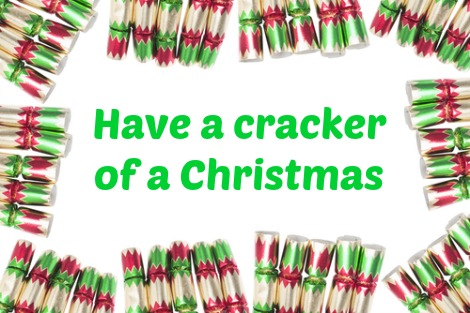 If sarcasm is the lowest form of wit, then punning must have a reputation almost as undesirable. A joke that can be greeted only with a groan or, better still, complete silence, can hardly be a real joke now, can it?
If sarcasm is the lowest form of wit, then punning must have a reputation almost as undesirable. A joke that can be greeted only with a groan or, better still, complete silence, can hardly be a real joke now, can it?
Santa walks into a bar and the barman says: Sorry, we're claused.
But punning has a rich history. It dates back to prehistoric times, graces the pages of the greatest of writers (think Chaucer, Shakespeare, Joyce), delights the hearts of newspaper headline writers throughout the world and is more or less essential to cryptic crossword setters.
'Are you pudding in an appearance at the Christmas break-up?'
'Will my presents be welcome?'
'Yes, and Yule enjoy it.'
'I Noel I will, holly.'
'Anyway, Merry Chrysanthemum.'
'And a Happy Nude Ear to you.'
And on and on it can go, a game of sheer, infuriating wits played by two or more geniuses. Repartee at its very best ... or worst, depending on your point of view.
When it comes to puns, subeditors responsible for article headings believe themselves to be a race apart. Without needing to resort to 'best-ofs' it's not hard to find current examples.
Certainly not in the class of the Scottish Sun's response to Celtic being beaten 1–3 by lower-ranked Caledonian, 'SUPER CALLEY GO BALLISTIC CELTIC ARE ATROCIOUS'.
But Australian newspapers don't do a bad job either. Just one day of The Age (Melbourne) gives us: 'Chinese set to tee off on Albert Park development' (re Albert Park golf course), 'Pub sounds death knell over noise complaint', 'Richmond rep sings Swan song for home of theatre' (in Swan Street, of course), 'Rough Trott' (on English cricketer Jonathan Trott having to leave the Ashes tour) and 'You've got to expect fire during the Ashes.'
Pick up any paper and you'll find plenty of other examples.
As for literature, where do you start? As far as I can make out, the whole of Finnegan's Wake is one long pun, while Chaucer offers delights to the diligent reader, and Shakespeare was wedded to word play.
James Joyce, in fact, took punning to extremes in Finnegan's Wake, having already honed his skills on Ulysses. Finnegan's Wake can only be (partly?) understood if read aloud in an Irish accent. Try it.
Character names can be a sort of pun. Shakespeare had Crab, Pistol and Sir Toby Belch, among many. The Restoration comedy writers had a ball with double meaning, punning names, like Horner, the rake, and Lady Flippant, while Dickens was also a master, with a cast list of evocative names much longer than your arm — Charles (Master) Bates heads a fine crew, and don't forget Pumblechook, who looks as if he has 'just been nearly choked', and Bob Cratchit having to scratch out a living.
Cryptic crosswords rely on puns almost as much as they do on anagrams. Three examples:
'Sounds like the sea on the horse's neck.' (4)
'Two girls on my knee.' (7)
'Laying up for Christmas night?' (8)
The answers to the above are mane, patella and, of course, stocking.
Perhaps the first pun I ever noticed was Pope Gregory the First's Non Angli, sed Angeli which the Christian Brothers who taught me seemed to think was so clever — when later I wondered why these staunch Irishmen would think of the English as Angels. Never mind, perhaps they just liked a good pun.
Probably though, this was predated by my older brother Gavan's punning, including a type of acted pun — Mum would say: 'Put on the kettle please, Gav' and he would appear seconds later with the kettle on his head and the question: 'Anything else you want me to do?'
I suppose that I grew up on puns, deliberate over-literalism, ambiguities and twists of meaning, which must have totally bewildered non lateral thinkers, who have already long since stopped reading this article, or probably never even started.
Finally, don't forget that another expression for 'pun' is 'word play' and another term for 'word play' is 'enjoyment'. Oh, and I almost forgot another favourite form of punning — the knock knock joke:
Knock, knock.
Who's there?
Irish.
Irish who?
Irish you a Merry Christmas.
And I do.
 Barry Breen has published two collections of poetry, three of short stories and, with Lorna Hannan, five anthologies of poetry for schools. He has received an Arts Council Senior Literary Fellowship and various prizes for poetry, short stories, children's stories and acting.
Barry Breen has published two collections of poetry, three of short stories and, with Lorna Hannan, five anthologies of poetry for schools. He has received an Arts Council Senior Literary Fellowship and various prizes for poetry, short stories, children's stories and acting.
Christmas crackers image from Shutterstock